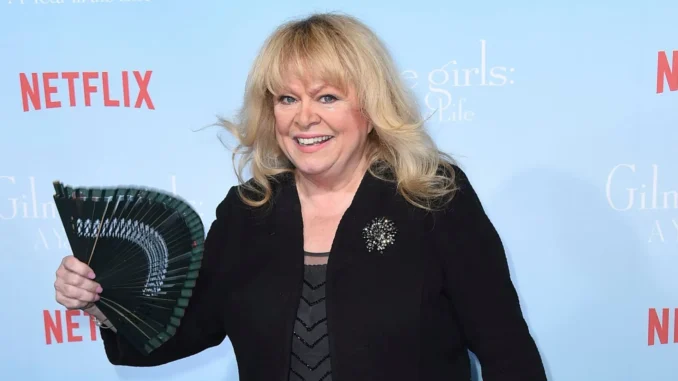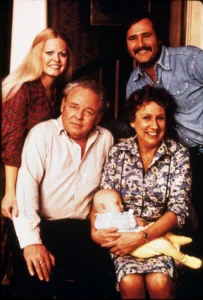
It’s been a whopping 50 years since All in the Family debuted, but Sally Struthers will always be remembered for playing Archie Bunker’s “little girl,” Gloria Stivic. “It feels like it happened 15 years ago, but it also feels like it happened a 100 years ago,” Sally, who won two Emmys for the show, exclusively tells Closer Weekly, on newsstands now. “Time is a curious thing, and I can’t quite get a handle on how much time has passed.”
In the decades since All in the Family went off the air, Sally, 73, became known to a new generation playing Babette on Gilmore Girls. She’s also worked as an advocate for the Save the Children charity and provided voices for animated series, including Dinosaurs and TaleSpin. This divorced mom of an adult daughter still works frequently in theater and other projects, but it’s her beloved television roles that fans remember the most fondly. “It’s funny. Quite often I will get stopped by a family. The mother will say, ‘Oh, we love you on All in the Family,’” Sally shares. “Then the daughter will say, ‘No, she’s Babette!’ It’s so funny to see the generational thing happen.”
When you were hired for All in the Family in 1971, did you have any idea the show would change your life?
Most often, performers don’t have a clue what the length of a job will be. I had just come off The Tim Conway Comedy Hour. I should have been on all 13 weeks of it, but after the fifth show, the executives said, “Get rid of that dancer girl. She makes the show look cheap!” So I was let go.
You must have been upset!
I was distraught! I adored Tim Conway and wondered what would happen to me next. But I went to read for this man nobody knew, [All in the Family creator] Norman Lear. He said it was the role of the daughter, and he gave me a yelling scene. I had laryngitis that day, so my voice was raspy, but I guess it made him remember me. He narrowed it down to four young ladies, and I was one of the final four.
Do you know who else was up for the role?
Rob Reiner had already been cast as Michael Stivic, and sitting in one of those four chairs was his girlfriend Penny Marshall. I knew they were a couple and thought I didn’t stand a chance. But thinking that made the nervousness leave my body, and I went in and did what they asked. And then you know the end of that story.

What did you have in common with Gloria?
Other than being young and female, I didn’t feel like I had a lot in common with her. I was born and raised in the Pacific Northwest, and Gloria was an Astoria, New York, girl. I was raised devoutly Lutheran, and Gloria had no religion. I didn’t get married until I was 30, but Gloria married very young. My father was a doctor, and Archie Bunker was a very simple, lower-middle-class, blue-collar, uneducated yet lovable guy.
It must have been a challenge to play her!
Not at first. For the first five years, the writers didn’t know what to do with her. She had about three lines per show, which were like, “I’ll help you set the table, Ma,” or, “Daddy, stop it.”
How did Gloria change?
Michael expanded Gloria’s knowledge of the world, politics and her power as a woman. The writers also eventually gave me more to do by Gloria having a baby and Mike and Gloria moving next door. They finally wrote stories about Mike and Gloria and gave me some meat. I had been eating salad for five years and I finally got the entrée!
How did the cast get along?
We got along as beautifully as anyone could have ever hoped. There wasn’t any competition between us. We all revered one another because it was the perfect casting. Rob and I were the third set of kids — Carroll O’Connor and Jean Stapleton had made two other pilots before we went to CBS. I have never seen those two pilots, but I hear you can find them on YouTube. People who’ve seen them say that Rob and I finally had the right chemistry for Jean and Carroll.
What do you remember most fondly about Jean?
She was my living, breathing, example of what it’s like to be subtle as a human being — to not have to own the room, to just arrive and do the work. To always be prepared and cooperative and positive. A lot of that came from her religion as a Christian Scientist. She didn’t think or say a single negative thing. That was glorious to be around!
And how about Carroll?
In 1968, my own father passed away. I was still feeling bad and fatherless when I got this show. Carroll and his wife, Nancy, turned out to be as parental with me as he was in the show. Carroll gave me advice, he laughed at my antics, he hugged me all the time — and he introduced me to my husband [William Rader]! So I gained a father again by doing that show.